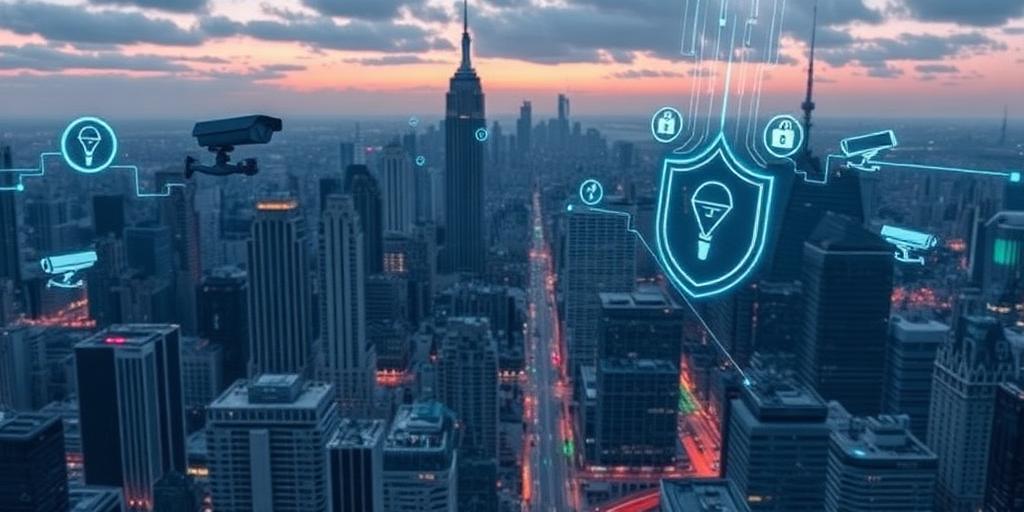Can "Ethical Tech" Survive in a Surveillance-Driven World?
In an era defined by ubiquitous data collection and advanced surveillance technologies, the concept of "ethical tech" faces unprecedented challenges. As our lives become increasingly digitized, the tension between technological innovation and individual privacy intensifies. This post explores whether ethical tech can genuinely thrive amidst the growing surveillance landscape.
Defining Ethical Tech
Ethical tech encompasses the design, development, and deployment of technology that prioritizes user privacy, data security, transparency, and accountability. It seeks to minimize harm and maximize benefits for all stakeholders, aligning technological advancements with human rights and moral principles.
The Rise of Surveillance Technologies
Surveillance technologies have become increasingly prevalent, driven by various factors, including national security concerns, law enforcement needs, and commercial interests. These technologies range from facial recognition systems and location tracking to sophisticated data analytics that can predict individual behaviors and preferences.
Challenges to Ethical Tech
- Data Collection and Privacy: The extensive collection of personal data poses a significant threat to privacy. Many tech companies collect vast amounts of user data, often without explicit consent or transparent data practices. Ethical tech advocates for data minimization, anonymization, and user control over personal information.
- Algorithmic Bias: Algorithms used in surveillance technologies can perpetuate and amplify existing societal biases. For example, facial recognition systems have been shown to be less accurate in identifying individuals from certain racial and ethnic groups. Ethical tech emphasizes the importance of fairness, non-discrimination, and bias mitigation in algorithmic design.
- Lack of Transparency: Many surveillance technologies operate behind closed doors, making it difficult to understand how they work and what data they collect. This lack of transparency undermines accountability and public trust. Ethical tech calls for greater transparency in the development and deployment of surveillance systems.
- Regulatory Gaps: The rapid pace of technological innovation often outpaces regulatory frameworks, creating gaps in legal protections for privacy and data security. Ethical tech supports the development of clear, enforceable regulations that protect individual rights and promote responsible data practices.
Opportunities for Ethical Tech
Despite these challenges, opportunities exist for ethical tech to make a positive impact:
- Privacy-Enhancing Technologies (PETs): PETs, such as encryption, differential privacy, and secure multi-party computation, can help protect user privacy while still enabling valuable data analysis and insights. Ethical tech companies can leverage these technologies to build privacy-preserving products and services.
- Open-Source and Decentralized Solutions: Open-source and decentralized technologies can promote transparency, accountability, and user control. By developing open-source surveillance tools and decentralized data storage systems, ethical tech can empower individuals and communities to protect their privacy and autonomy.
- Ethical AI and Machine Learning: Developing AI and machine learning algorithms that are fair, transparent, and accountable is crucial. Ethical tech companies can prioritize ethical considerations in the design and training of AI systems, ensuring they do not perpetuate biases or infringe on individual rights.
- User Education and Advocacy: Raising awareness about the risks of surveillance technologies and advocating for stronger privacy protections are essential. Ethical tech companies can educate users about their rights and empower them to make informed choices about their data.
Conclusion
The survival of ethical tech in a surveillance-driven world depends on a multi-faceted approach. It requires technological innovation, regulatory reform, and public engagement. By prioritizing privacy, transparency, and accountability, ethical tech can help shape a future where technology serves humanity rather than controlling it. As consumers, developers, and policymakers, it is our collective responsibility to champion ethical tech and ensure it thrives in an increasingly surveilled world.









